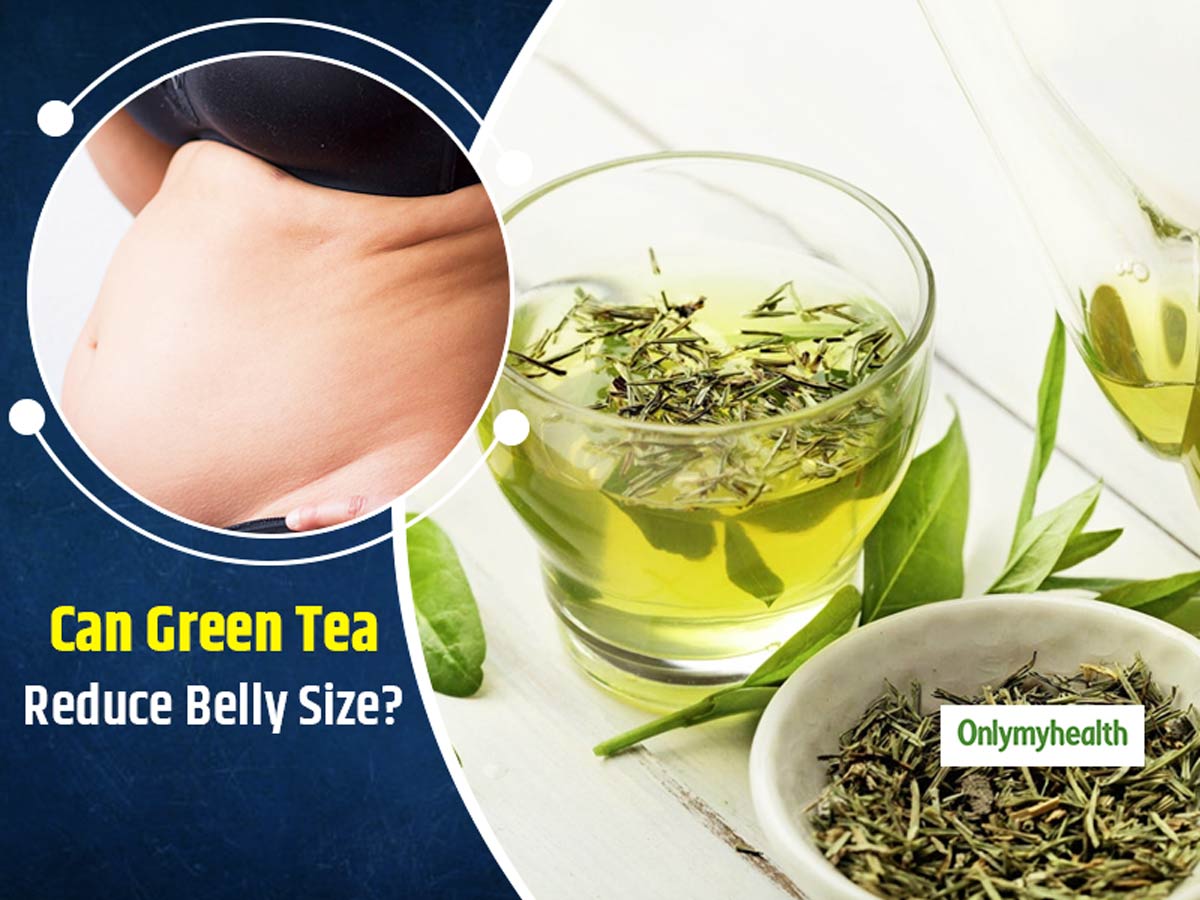Discover whether green tea can effectively help burn belly fat. Explore the latest research and expert opinions in this informative article.
Green tea has long been touted for its numerous health benefits, and one question that often arises is whether it can effectively help burn belly fat. With obesity rates on the rise and the desire for a trim waistline, this topic has gained significant attention. In this article, we will explore the potential effects of green tea on burning belly fat, taking into account the latest scientific research and expert opinions. By the end, you will have a better understanding of whether incorporating green tea into your diet could be a worthwhile strategy in your weight loss journey.
Can Green Tea Help Burn Belly Fat?
Green tea has gained significant popularity in recent years as a potential aid in weight loss. One specific aspect that has garnered attention is its supposed ability to burn belly fat. Belly fat, also known as visceral fat, is a stubborn and potentially dangerous type of fat that accumulates around the abdominal area. Understanding the relationship between green tea and belly fat can help individuals make informed decisions about incorporating it into their weight loss journey.

Understanding Belly Fat
Before delving into the potential effects of green tea on belly fat, it is crucial to understand the nature of belly fat itself. Unlike subcutaneous fat, which lies directly beneath the skin, visceral fat resides deep within the abdominal cavity and surrounds vital organs such as the liver and intestines. Excessive accumulation of visceral fat has been linked to an increased risk of various health conditions, including heart disease, type 2 diabetes, and certain types of cancer.
The Benefits of Green Tea for Weight Loss
Green tea has long been associated with numerous health benefits, including weight loss. It is attributed to its rich content of bioactive compounds, such as catechins and caffeine. These compounds are believed to work synergistically to induce thermogenesis, increase fat oxidation, and support overall metabolic function. While weight loss is a complex process that involves various factors, green tea has shown potential in aiding individuals striving to shed excess pounds.
The Role of Catechins in Green Tea
Catechins are a type of flavonoid present in green tea and are considered one of its key bioactive components. Epigallocatechin gallate (EGCG) is the most abundant catechin found in green tea and has been extensively studied for its potential health benefits. Research suggests that EGCG can enhance fat oxidation, increase energy expenditure, and potentially help reduce body weight and fat mass.
Boosting Metabolism with Green Tea
Metabolism plays a crucial role in weight management. It refers to the chemical processes that occur within the body to convert food and drink into energy. Green tea has been suggested to have a thermogenic effect, meaning it can increase calorie expenditure and boost metabolism. Caffeine, present in green tea, can stimulate the central nervous system and enhance the metabolic rate. Additionally, catechins found in green tea have been shown to increase fat oxidation, contributing to a potential increase in energy expenditure.




Regulating Blood Sugar Levels
Uncontrolled blood sugar levels can lead to weight gain and an increased risk of developing type 2 diabetes. Green tea has shown promise in helping regulate blood sugar levels. Catechins present in green tea can inhibit certain enzymes involved in carbohydrate digestion and glucose absorption. This, in turn, may help prevent spikes in blood sugar levels and promote better glycemic control.
Reducing Appetite and Caloric Intake
An individual’s ability to manage their appetite and caloric intake plays a significant role in achieving weight loss goals. Green tea has been suggested to have appetite-suppressing properties. Catechins, combined with the moderate caffeine content in green tea, may help reduce feelings of hunger and control cravings. By consuming green tea, individuals may be able to better manage their overall caloric intake, leading to potential weight loss.




Enhancing Fat Oxidation and Breakdown
The process of fat oxidation involves the breakdown of stored fat into usable energy. Research suggests that the catechins in green tea can enhance fat oxidation, thus aiding in weight loss efforts. A study published in The Journal of Nutrition found that men who consumed green tea extract with high levels of catechins experienced a greater increase in fat oxidation compared to those who consumed a placebo. This suggests that green tea may promote the breakdown of stored fats, including stubborn belly fat.
Improving Exercise Performance
Regular physical activity is essential for weight loss and overall well-being. Green tea can potentially enhance exercise performance, leading to increased calorie burning. The caffeine content in green tea has been shown to improve endurance, allowing individuals to exercise for longer durations. Moreover, studies have indicated that green tea extract supplementation may increase fat utilization during exercise, potentially further aiding fat loss.




Choosing the Right Green Tea
Not all green teas are created equal. To maximize the potential benefits, it is essential to choose high-quality green tea products. Opting for loose-leaf green tea or matcha powder is generally recommended over tea bags, as they tend to contain higher concentrations of beneficial compounds. Additionally, organic and non-GMO options can provide reassurance regarding potential pesticide exposure. It is also worth noting that decaffeinated green tea may have lower levels of some beneficial compounds, so opting for caffeinated varieties may be more advantageous for weight loss purposes.
Incorporating Green Tea into Your Routine
To incorporate green tea into your weight loss routine, it is recommended to consume it regularly and in moderation. While there is no specific recommended dosage, studies have indicated that consuming 2-3 cups of green tea per day may provide potential weight loss benefits. It is important to note that green tea should not replace a balanced diet and regular exercise, but rather complement an overall healthy lifestyle.




Potential Side Effects and Considerations
While green tea is generally safe for most individuals, it is essential to consider potential side effects and factors that may interact with its consumption. Green tea contains caffeine, which can cause side effects such as nervousness, jitteriness, and disrupted sleep patterns in sensitive individuals. Additionally, green tea may interact with certain medications, including blood thinners and those for heart conditions. It is always advisable to consult with a healthcare professional before incorporating green tea or any new dietary supplement into your routine.
In conclusion, while green tea alone may not be a magical solution for burning belly fat, it has shown potential in aiding weight loss efforts. Its ability to increase fat oxidation, boost metabolism, regulate blood sugar levels, and reduce appetite makes it a valuable addition to a comprehensive weight loss plan. Used in conjunction with a healthy diet, regular exercise, and lifestyle modifications, green tea can potentially support individuals in their journey towards a healthier weight and reduced belly fat.